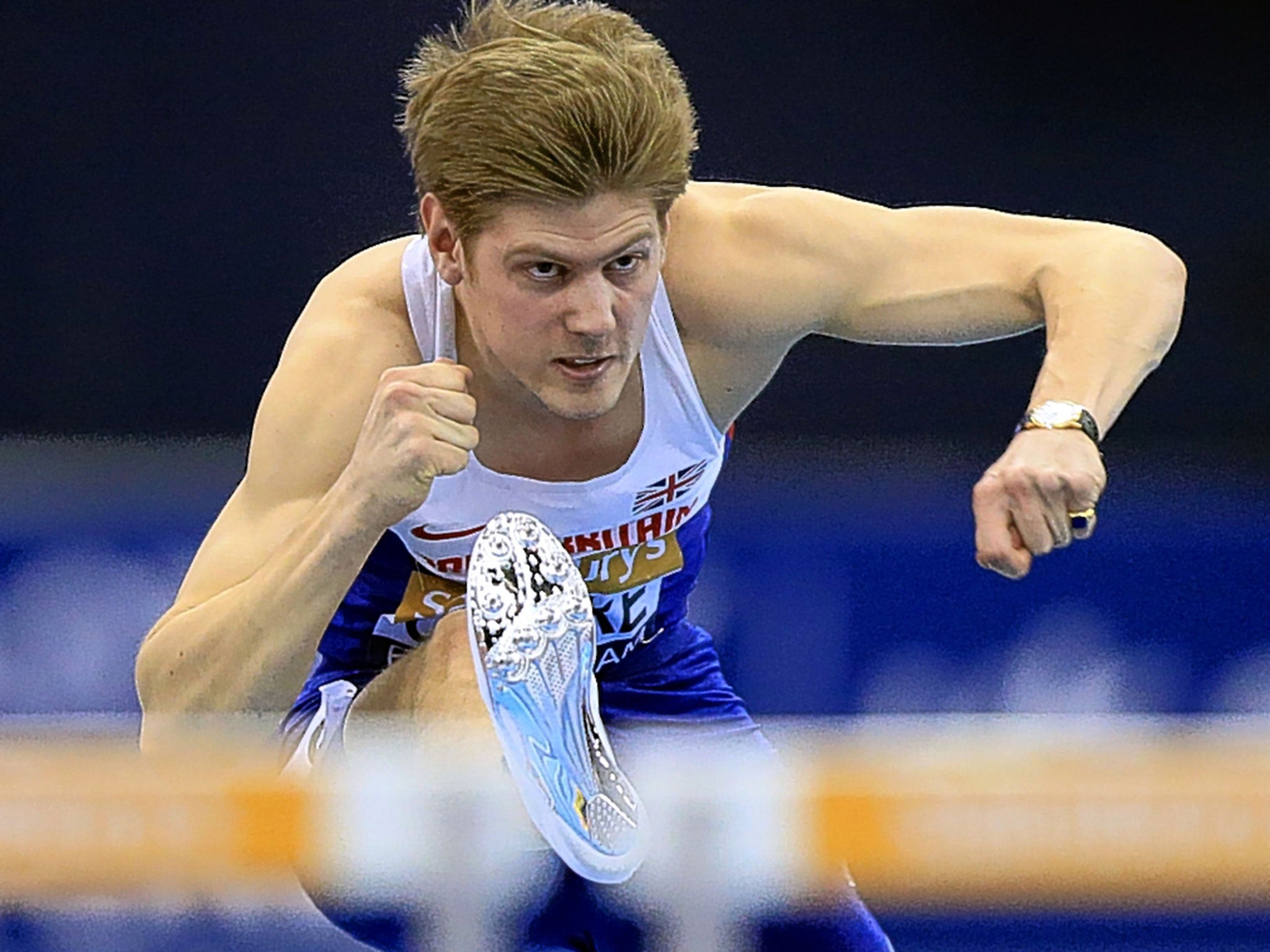How a climbing tragedy helped hurdler Lawrence Clarke in his desire to conquer new peaks

Your support helps us to tell the story
From reproductive rights to climate change to Big Tech, The Independent is on the ground when the story is developing. Whether it's investigating the financials of Elon Musk's pro-Trump PAC or producing our latest documentary, 'The A Word', which shines a light on the American women fighting for reproductive rights, we know how important it is to parse out the facts from the messaging.
At such a critical moment in US history, we need reporters on the ground. Your donation allows us to keep sending journalists to speak to both sides of the story.
The Independent is trusted by Americans across the entire political spectrum. And unlike many other quality news outlets, we choose not to lock Americans out of our reporting and analysis with paywalls. We believe quality journalism should be available to everyone, paid for by those who can afford it.
Your support makes all the difference.Growing up, all Lawrence Clarke ever wanted to do was climb Mount Everest, but tragedy on a mountain top shifted his career path to ground level.
Now the ascent he has in mind is no more than 42 inches, the height of the five hurdles between him and a shot at a 60m hurdles gold medal at the European Indoor Athletics Championships in Prague today.
Once labelled “the poshest man in sport”, the old Etonian had climbed Mont Blanc by the age of 13: “I was obsessed with mountain climbing,” he says. “When I was 10 years old, I started proper climbing and it was a proper addiction.”
Clarke would go to talks by the famous mountaineer Chris Bonington and pore over climbing literature. His initial goal was to be the youngest up Everest at the age of 14. However, a 13-year-old Nepalese girl beat him to it.
He stopped mountaineering at the age of 15 after a tragic event. “I was climbing with a guide up the back side of the Grand Combin, near Verbiers, Switzerland,” he explains. “There was a group of six Germans and one in the middle slipped off the cliff. Because I was with the only guide, he had to organise the rescue because there were 70 mile per hour winds.
“Traumatically, I was taken down to this group of Germans in their 30s, crying their eyes out. Age 15, I’m sitting there going, ‘My God.’ When we were back at the hut, there was just a hand hanging off the stretcher. I never went back.”
While Clarke’s personal trauma healed in time, he believes some of the lessons learned have been instantly transferrable to his second sporting life in athletics.
“It makes you realise, don’t make mistakes,” he says. “It’s so important to be the best at what you do and put in the right preparation. This guy didn’t have crampons on. It’s like turning up to the track without spikes. It’s a no-brainer. What it put into perspective is the fragility of what you do.”
Clarke is one of sport’s more urbane talents. He is related to the Roosevelt family, his uncle is the Conservative MP Jacob Rees-Mogg, he studied Zen Buddhism at university and was once blessed 1,000 times by the Dalai Lama.
He is also captain of the British team and, after two injury-ravaged years, is finally back to full fitness, bar a bandaged finger:
“I had a fight with an avocado,” he said. “They tell you to eat healthy but I would have been better off with a chocolate orange because you don’t need a knife.”
For the first time since finishing fourth in the 110m hurdles final at London 2012, Clarke is finally back to the peak of his powers, daring to dream of a title, despite being up against a trio of impressive Frenchman in Dimitri Bascou, Pascal Martinot-Lagarde and Wilhem Belocian.
On paper, all are set to beat him, but the form guide does not always work like that.
Clarke, whose consistency has been so good he’s hit just one hurdle since returning to training, says: “I’m hoping the French will take care of each other, put so much pressure on each other that I can slip in on the outside.”
Join our commenting forum
Join thought-provoking conversations, follow other Independent readers and see their replies
Comments